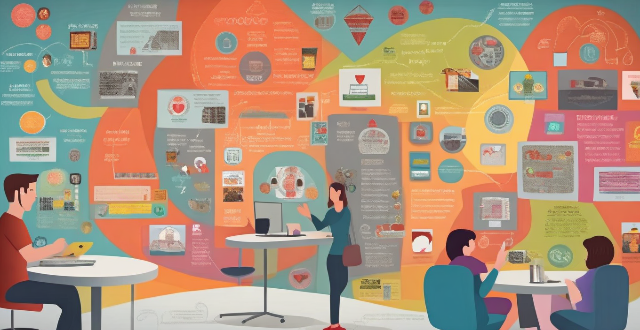Living in a multicultural society presents challenges like language barriers, cultural differences, and social isolation. Overcoming these involves strategies such as education, celebrating diversity, fostering inclusivity, building intercultural competence, and supporting identity development.

Challenges of Living in a Multicultural Society
Living in a multicultural society can be both enriching and challenging. Here are some of the common challenges that individuals may face:
1. Language Barriers
- Communication Difficulty: Different languages spoken by various communities can lead to misunderstandings and miscommunications.
- Limited Access to Services: Limited language proficiency can make it difficult for individuals to access essential services like healthcare, education, and government assistance.
2. Cultural Differences
- Misinterpretation of Customs: Misunderstanding cultural practices can lead to offense or discrimination.
- Differences in Values and Beliefs: Conflicting values and beliefs between cultures can create tension and conflict.
3. Stereotyping and Prejudice
- Stereotyping: People may hold preconceived notions about other cultures, leading to stereotyping and prejudice.
- Discrimination: Discrimination based on race, ethnicity, or cultural background can limit opportunities for individuals.
4. Social Isolation
- Feeling of Exclusion: Individuals from minority cultures may feel excluded from mainstream society.
- Difficulties in Making Friends: Cultural differences can make it difficult for individuals to form friendships with those from different backgrounds.
5. Identity Confusion
- Cultural Identity Crisis: Individuals may struggle with their cultural identity, feeling torn between their heritage and the culture of their new home.
- Loss of Heritage: Fear of losing one's cultural heritage can lead to a sense of loss and confusion.
Overcoming the Challenges
To overcome these challenges, here are some strategies:
1. Education and Awareness
- Language Learning: Encourage language learning programs to help individuals communicate effectively.
- Cultural Education: Promote cultural education to increase awareness and understanding of different cultures.
2. Celebrating Diversity
- Multicultural Events: Organize multicultural events to celebrate diversity and promote intercultural understanding.
- Media Representation: Ensure diverse representation in media to promote positive images of different cultures.
3. Fostering Inclusivity
- Inclusive Policies: Implement inclusive policies in schools, workplaces, and communities to prevent discrimination.
- Accessible Services: Make essential services accessible to all individuals, regardless of their language or cultural background.
4. Building Intercultural Competence
- Intercultural Training: Offer intercultural training programs to develop skills in cross-cultural communication and understanding.
- Mentorship Programs: Create mentorship programs to help individuals navigate the complexities of living in a multicultural society.
5. Supporting Identity Development
- Cultural Exchange Programs: Support cultural exchange programs to help individuals maintain their cultural heritage while embracing the culture of their new home.
- Identity Support Groups: Establish support groups for individuals who are struggling with their cultural identity.
By implementing these strategies, individuals can better navigate the challenges of living in a multicultural society and foster a more harmonious and inclusive community.